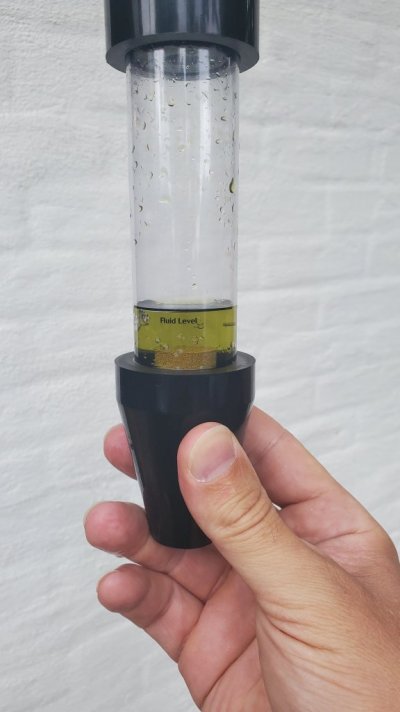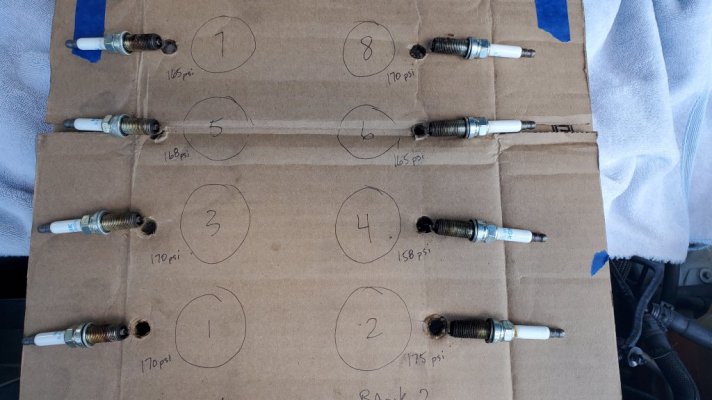I'm kind of curious what you mean by "just" a cracked head? I would prefer the blown head gasket, personally.

My limited experience with both indicates that it's very hard to tell the difference between the two until you get the head off the block. Even then, you only can eliminate one (the cracked head) as the culprit. I had a Unimog engine where I kept getting oil in the coolant, and I never did figure out what the source was. I imagine it was a block defect somewhere in the high-pressure part of the oil galleys.
Anyway, no coolant in the oil might just be a sign of how small the leak is currently. As it grows, you might start to see more evidence of coolant in the crankcase. A compression or leakdown test might help identify what bank the issue is in, and possibly even what cylinder.
I'll just throw this out there, probably much to the consternation of many: I had one engine where it was not worth it to me to tear it down and do the repair on the cylinder head. I didn't know whether it was the head gasket or the head itself, and it didn't really matter to me. So I bought some block seal chemical and put it in the coolant, ran it for awhile that way, then flushed the system. That engine ran fine, with no further evidence of leaks, for 30k miles or so. But it was a Toyota, so...it had that going for it.



